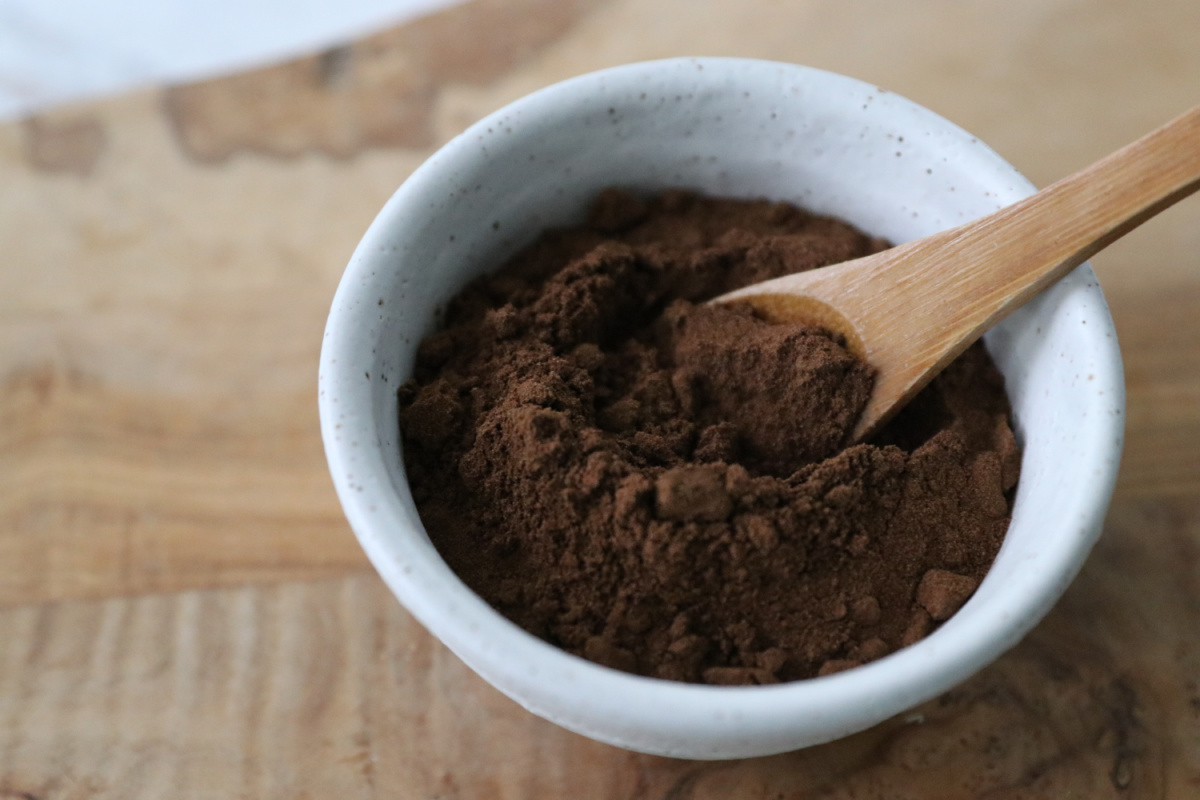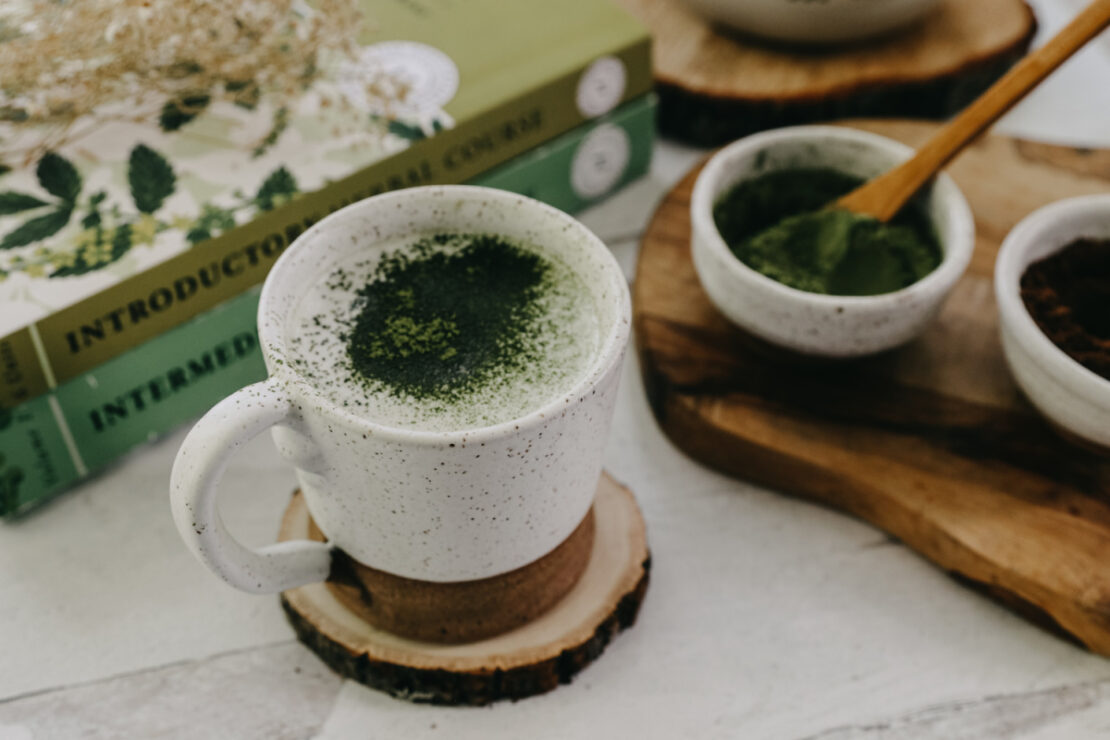
Nourishing Matcha Tea Recipe With Lion’s Mane
Want to start your day with energy, but skip the intensity of coffee? Look no further than this Lion’s Mane Matcha recipe! This unique blend provides a mild caffeine boost while also supporting mental calm and focus. It’s the perfect cup of goodness to accompany your herbal study time or any activity that requires mental effort and concentration.
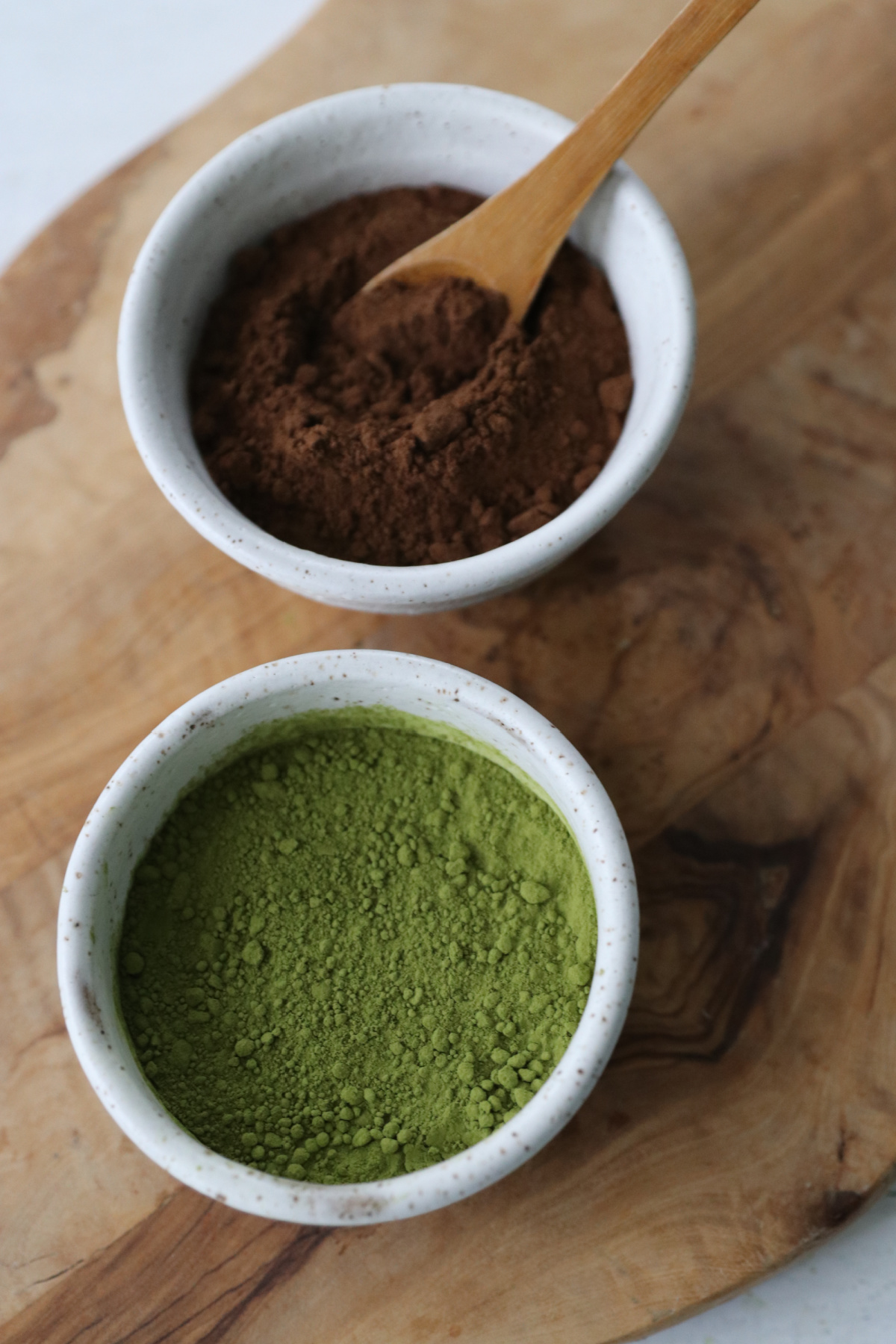
Lion’s Mane Matcha Ingredients
This energizing beverage contains two powerhouse ingredients: lion’s mane and matcha. Each is a useful ally to brain health, with notable properties that enhance and support cognitive function.
In addition to this beverage contributing to brain function and overall wellbeing, it’s delicious and convenient to make. Both superstar ingredients come in powdered form so you can prepare a cup in no time.
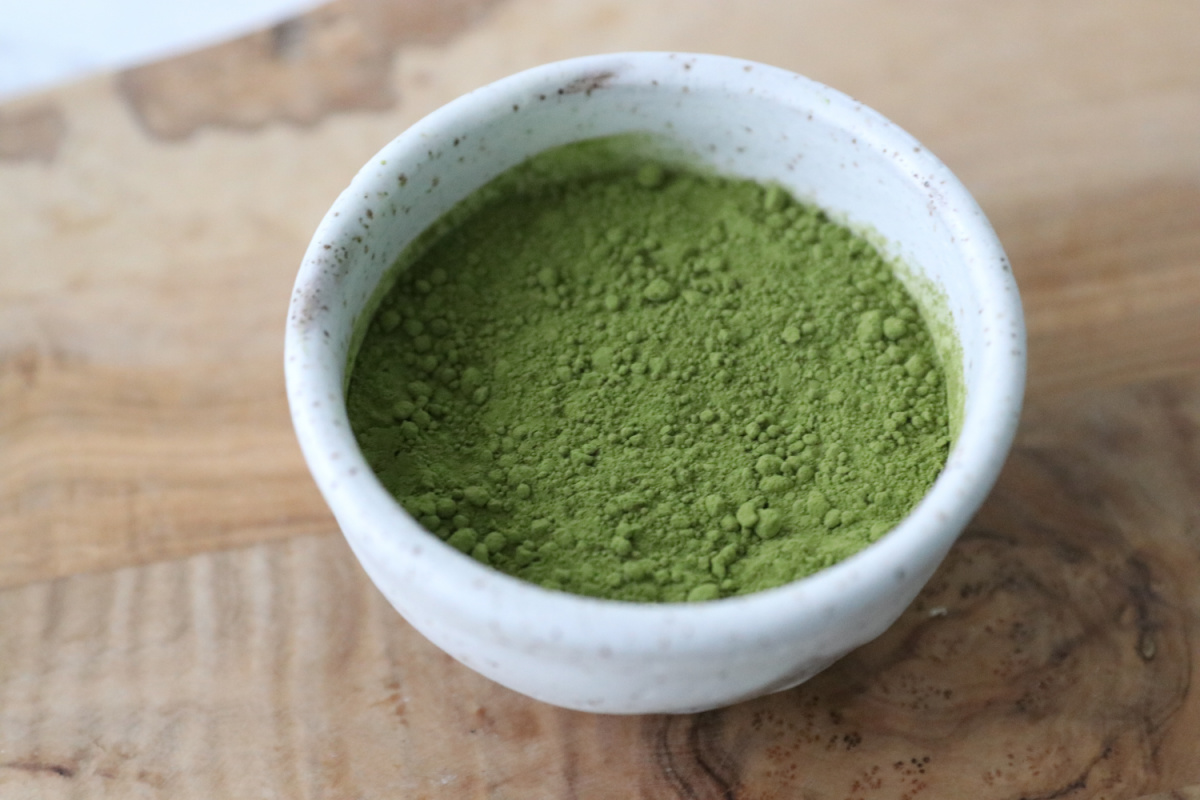
Matcha (Camellia sinensis)
With a long history of use in traditional Japanese tea ceremonies, matcha is a type of green tea with many wonderful benefits. To make matcha tea, the shade-grown tea leaves of the Camellia sinensis plant are ground into a fine powder. To prepare matcha tea, matcha powder is whisked into hot water. This differs from the green tea many of us enjoy regularly, which is prepared by steeping the leaves in hot water. Matcha allows us to consume the leaves themselves (in powdered form) rather than an infusion of the leaves.
Matcha has a light, sweet, and distinctly grassy flavor and is usually deep green in color. Besides its use as a tea, matcha is often incorporated into desserts and snacks (such as energy balls) and is even used in some skin care products.
Along with antioxidant and anti-inflammatory properties, matcha contains significant amounts of the amino acid L-theanine, which is thought to help with calm and focus. Green tea is also considered a nootropic that assists in focus, memory, and learning. It may even have mild adaptogenic properties and help maintain healthy cortisol and catecholamine levels in response to stress (Winston & Maimes, 2007).
While matcha does contain caffeine, it is believed that the accompanying L-theanine helps to mitigate some of its unpleasant side effects, such as the common energy crash that often follows a morning cup of coffee. It is believed that while L-theanine lessens the negative aspects of caffeine consumption, it still allows for the enhanced alertness provided by this natural stimulant (Dodd et al., 2015).
To learn more about the history of matcha and discover three delicious recipes, see our post:
How to Boost Your Health with Matcha Tea.
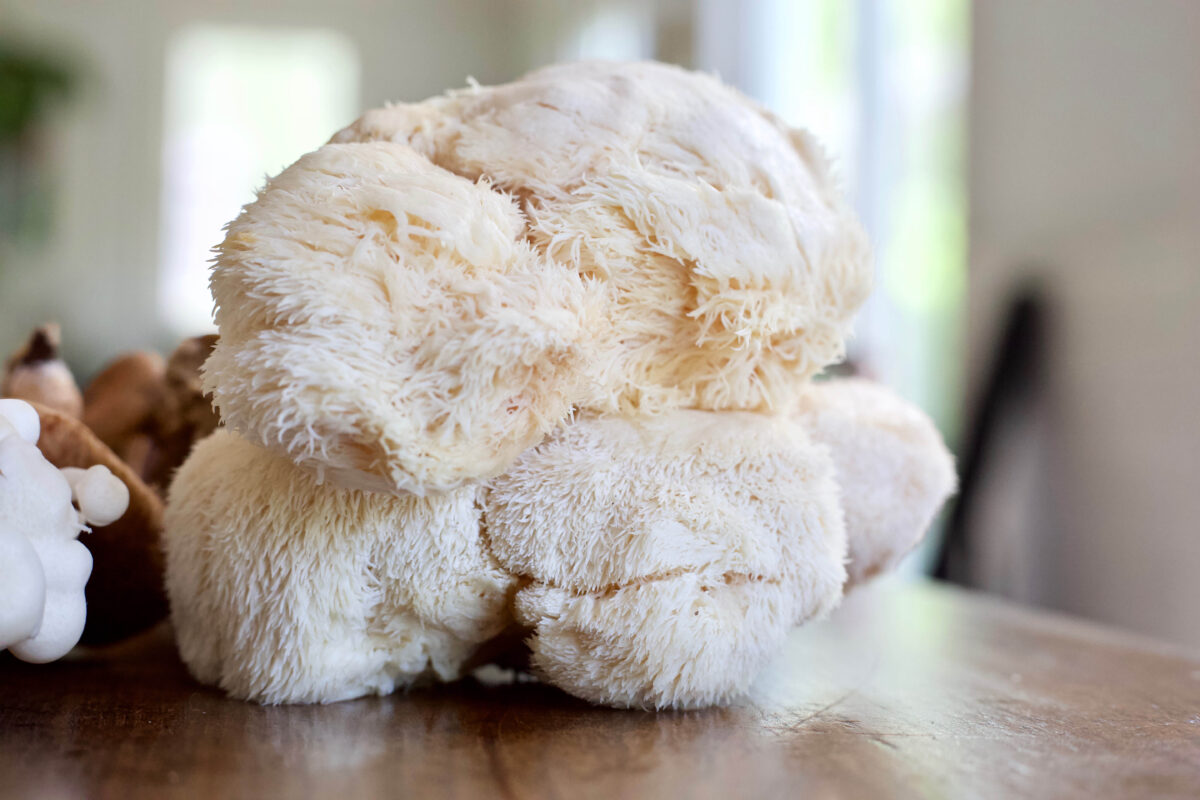
Lion’s Mane (Hericium erinaceus) fruiting body, mycelium
Lion’s mane is a member of the fungi kingdom and is often referred to as a mushroom. Although it has recently gained popularity as a superfood, lion’s mane has been esteemed as a “longevity tonic for the mind” throughout history (Herbal Academy, n.d., para. 20).
With antioxidant, anti-inflammatory, and immunomodulatory characteristics, lion’s mane has a reputation for aiding in the improvement of memory and focus. It’s also believed to have neuroprotective qualities, which may help in restoring and preserving cerebral function (Herbal Academy, n.d.).
Typically white in color, the fruiting body of lion’s mane has long, fluffy white spines that resemble the flowing tresses of a lion. It is usually discovered growing on dead or decaying oak, walnut, beech, maple, or sycamore logs or stumps (Stamets, 2005). As it ages, lion’s mane often changes to a brown or yellowish-brown color.
Today, many consumers enjoy lion’s mane in powder form. Lion’s mane powder may contain the fruiting body, mycelia, or both. Since raw mushrooms are difficult to digest, ideally a mushroom powder is made by first using heat to create an extraction and then the mushroom plus extraction is dried into a powder. Research shows that heat-treated extractions are likely to be more effective, as well (Coy et al., 2015).
With a bland to slightly sweet flavor, powdered lion’s mane can be included in many foods and beverages such as smoothies, energy balls, nut butters, teas, and lattes. Fresh lion’s mane is delicious sauteed in butter and can be added to soups, stews, and stir-fries.
To learn more about lion’s mane, see our post: Lion’s Mane Mushroom: What You Should Know.
If you’d like to learn more about mushrooms, be sure to check out The Mushroom Course, which covers 25 mushrooms in-depth! This course also teaches identification, harvesting, growing, storage, preparation, and cooking methods for each species.
Lion's Mane Matcha Tea
This energizing beverage is warm and comforting and supports mental calm and focus. It’s a wonderful substitute for your morning coffee and makes a terrific addition to study sessions or any other activity that calls for focus and mental work.
¼-½ tsp lion’s mane (Hericium erinaceus) extract powder
½ tsp matcha powder (more or less to taste)
1 cup (8 fl oz) water, boiled and cooled slightly
Honey or other sweetener, optional
- Place powdered lion’s mane and matcha in a large mug.
- Boil water and let cool briefly, then pour over the powdered herbs until the mug is about ¼ full.
- Use a whisk or fork to stir briskly for 30 seconds.
- Add the remainder of the hot water.
- If you prefer a latte-style matcha, substitute warmed milk or non-dairy milk of your choice and stir well to combine.
- Add sweetener to taste, if desired.
Note: powders may not dissolve completely, so you might want to stir your tea every few minutes as you drink to keep the powders from settling to the bottom of the mug.
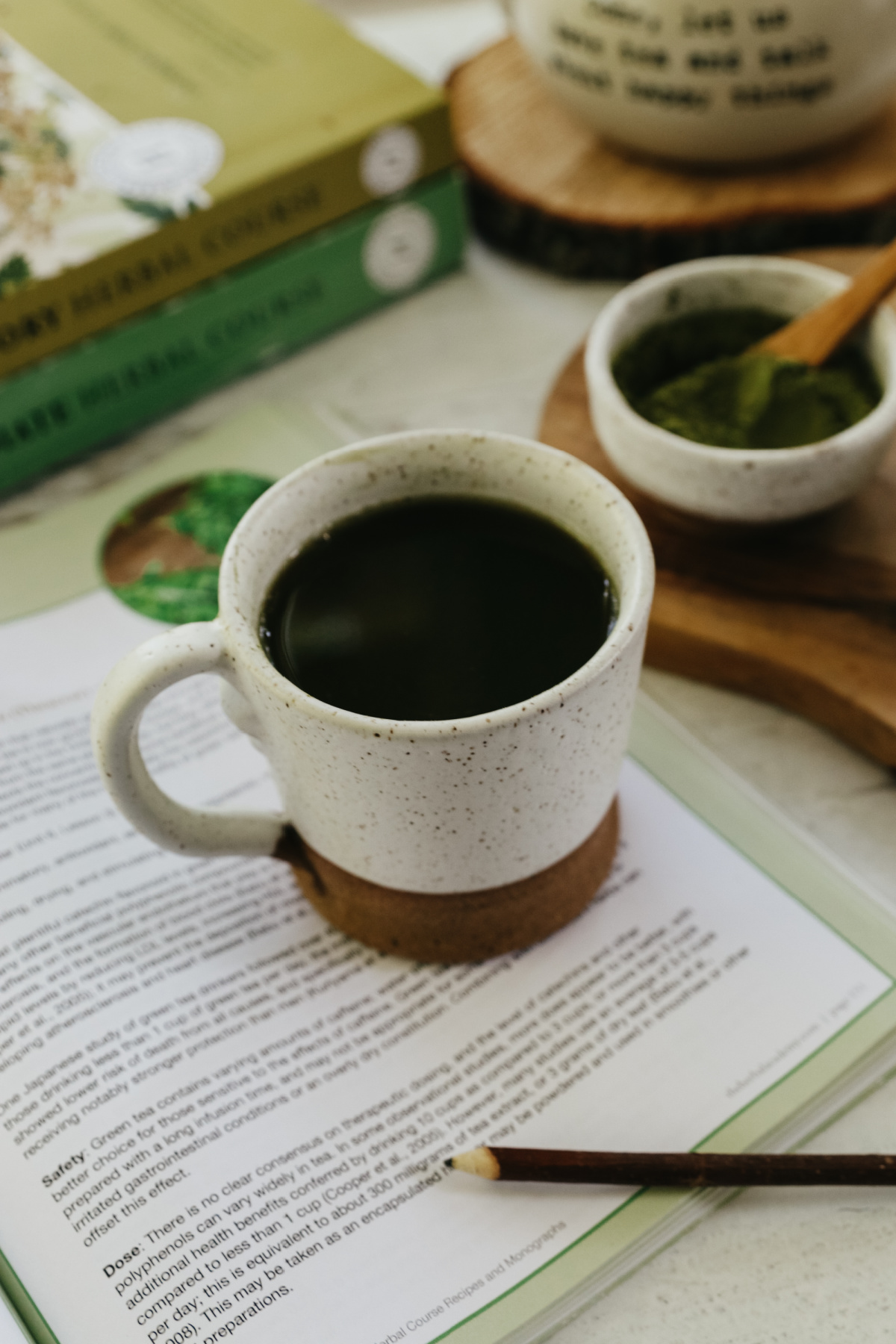
In Closing,
We hope that next time you need some support while focusing on your herbal studies you’ll give this Lion’s Mane Matcha recipe a try. Isn’t it wonderful that boosting brain function and improving learning is so simple and delicious?!
This Lion’s Mane Matcha recipe comes from our info-packed Botanical Nootropics Intensive which is housed inside The Herbarium, Herbal Academy’s membership site. If you’d like to learn more about brain-boosting herbs and gain access to this workshop and a number of other topic-focused intensives, check out The Herbarium! You’ll also gain access to our much-loved database of 200 in-depth plant monographs (and counting!), helpful media downloads, nearly 200 articles on herbal topics, videos, and podcasts.
Activate your Herbarium membership today!
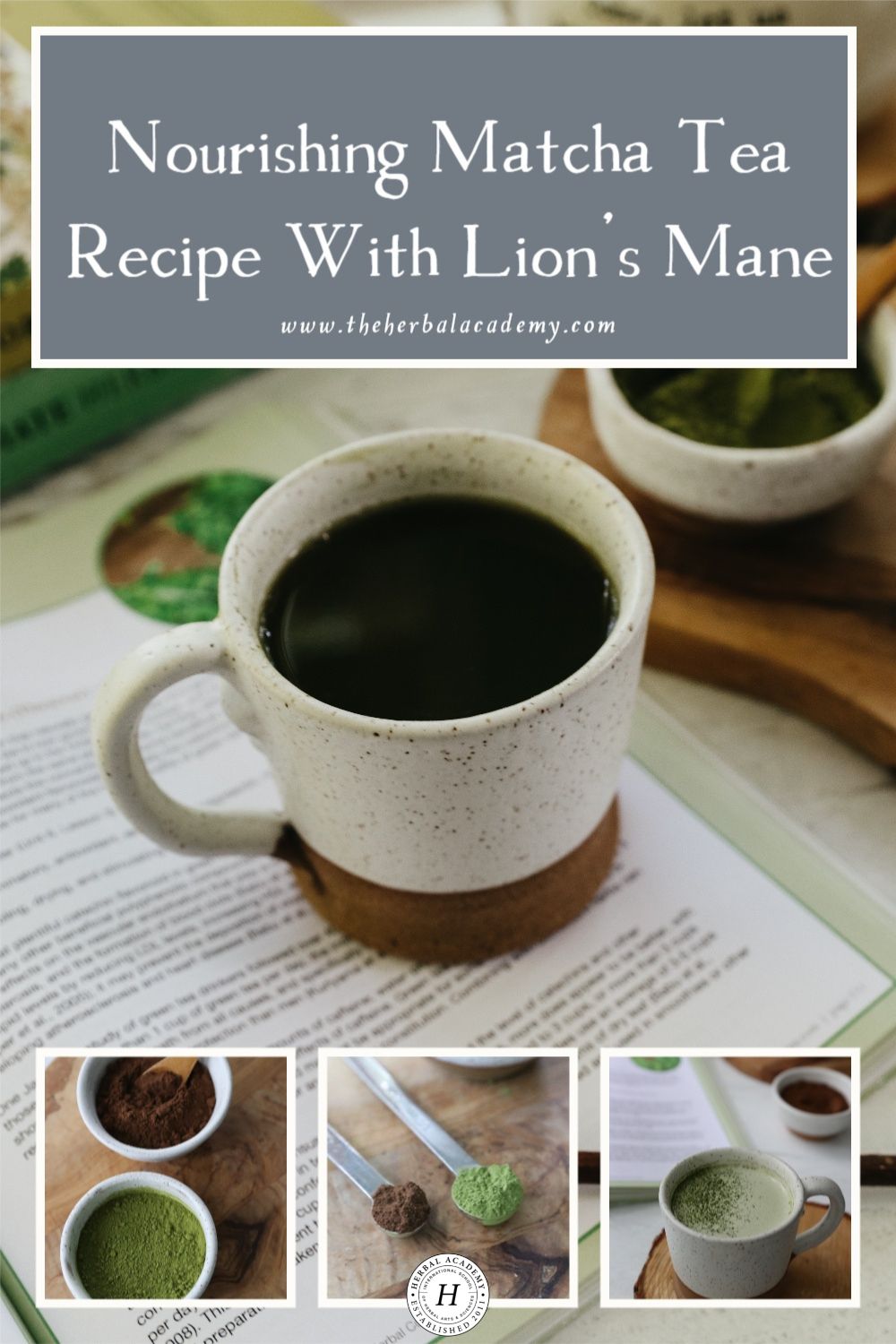
REFERENCES
Coy, C., Standish, L.J., Bender, G., & Lu, H. (2015). Significant correlation between TLR2 agonist activity and TNF-α induction in J774. A1 macrophage cells by different medicinal mushroom products. International Journal of Medicinal Mushrooms, 17(8), 713-722. http://doi.org/10.1615/IntJMedMushrooms.v17.i8.20
Dodd, F. L., Kennedy, D. O., Riby, L. M., & Haskell-Ramsay, C. F. (2015). A double-blind, placebo-controlled study evaluating the effects of caffeine and L-theanine both alone and in combination on cerebral blood flow, cognition and mood. Psychopharmacology, 232(14), 2563–2576. https://doi.org/10.1007/s00213-015-3895-0
Herbal Academy. (n.d.). Lion’s mane monograph. The Herbarium. https://herbarium.theherbalacademy.com/monographs/#/monograph/5167
Stamets, P. (2005). Mycelium running: How mushrooms can help save the world. Ten Speed Press.
Winston, D., & Maimes, S. (2007). Adaptogens: Herbs for strength, stamina, and stress relief. Healing Arts Press.


